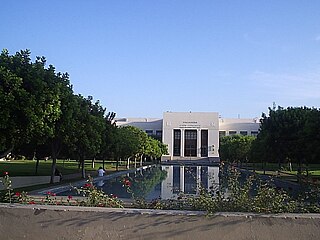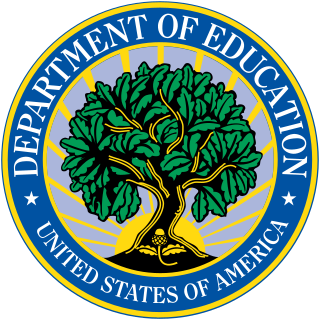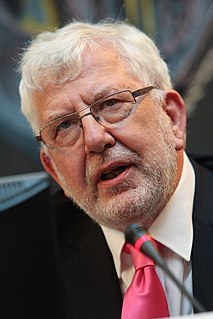
A community college is a type of educational institution. The term can have different meanings in different countries: many community colleges have an “open enrollment” for students who have graduated from high school. The term usually refers to a higher educational institution that provides workforce education and college transfer academic programs. Some institutions maintain athletic teams and dormitories similar to their university counterparts.

Education is the process of facilitating learning, or the acquisition of knowledge, skills, values, beliefs, and habits. Educational methods include storytelling, discussion, teaching, training, and directed research. Education frequently takes place under the guidance of educators and also learners may also educate themselves. Education can take place in formal or informal settings and any experience that has a formative effect on the way one thinks, feels, or acts may be considered educational. The methodology of teaching is called pedagogy.

Upward Bound is a federally funded educational program within the United States. The program is one of a cluster of programs now referred to as TRiO, all of which owe their existence to the federal Economic Opportunity Act of 1964 and the Higher Education Act of 1965. Upward Bound programs are implemented and monitored by the United States Department of Education. The goal of Upward Bound is to provide certain categories of high school students better opportunities for attending college. The categories of greatest concern are those with low income, those with parents who did not attend college, and those living in rural areas. The program works through individual grants, each of which covers a restricted geographic area and provides services to approximately 59,000 students annually. The program focuses on academic and nonacademic resources and activities like visits to museums or tutoring for school work. Students are encouraged to be involved in Upward Bound for the entire academic year and a 6-week long summer program. Many students who are also granted access into the Upward Bound program are labeled as first generation college students, who are students that are the first in their family to attend college. This program is set in place for students who come from low income families as well as underrepresented schools and gives them an opportunity to excel in college.
Indspire, until 2012 the National Aboriginal Achievement Foundation (NAAF), is a nationally registered charitable organization dedicated to raising funds to deliver programs that provide the tools necessary for Indigenous peoples in Canada, especially youth to achieve their potential.
The Gabriel Dumont Institute of Native Studies and Applied Research Inc. (GDI) was formally incorporated as a non-profit corporation in 1980, to serve the educational and cultural needs of the Saskatchewan Métis and Non-Status Indian community. The Institute is designated as the official education arm of the Métis Nation—Saskatchewan (MN-S). GDI offers a variety of accredited educational, vocational, and skills training opportunities for the province's Métis in partnership with the University of Regina, the University of Saskatchewan, the Saskatchewan Institute of Applied Science and Technology, the province's various regional colleges, and Service Canada.

The Elementary and Secondary Education Act (ESEA) was passed as a part of United States President Lyndon B. Johnson's "War on Poverty" and has been the most far-reaching federal legislation affecting education ever passed by the United States Congress. The act was an extensive statute that funded primary and secondary education. It also emphasizes equal access to education and establishes high standards and accountability.
The Maryland School of Public Policy is one of 14 schools at the University of Maryland, College Park. The school is located inside the Capital Beltway and ranks 16th nationally for schools of public policy according to U.S. News & World Report (2012).

Higher education in Canada describes the constellation of provincial higher education systems in Canada and their relationships with tent of federal government, provinces, and territories.

Higher education in Quebec differs from the education system of other provinces in Canada. Instead of entering university or college directly from high school, students in Quebec leave secondary school after Grade 11, and enter post-secondary studies at the college level, as a prerequisite to university. Although both public colleges (CEGEPs) and private colleges exist, both are colloquially termed CEGEPs. This level of post-secondary education allows students to choose either a vocational path or a more academic path.

Higher education in Manitoba traces the development and expansion of higher education in the Canadian province of Manitoba. In Canada, education is a provincial concern and there is no national regulation nor accrediting body.

Higher education in Alberta refers to the post secondary education system for the province of Alberta. The Ministry of Advanced Education in Alberta oversees educational delivery through universities, publicly funded colleges, technical institutions, and private colleges. These institutions offer a variety of academic and vocational pursuits. Students have access to post-secondary options through most regions of Alberta, and a developed articulation system allows for increased student mobility.

Higher education in Yukon is shaped by the territory's small population in a relatively large geographic area. The history of higher education went hand in hand with the establishment of a representative territorial government in 1979. Yukon School of Visual Arts and Yukon College are the only two higher education institutions in Yukon. Yukon College issues certificate, diploma, and partial and some full degree programs. The college is a community college and as a result it provides in addition to its academic and professional program, Adult Basic Education/literacy programs.

Higher education in Nova Scotia refers to education provided by higher education institutions. In Canada, education is the responsibility of the provinces and there is no Canadian federal ministry governing education. Nova Scotia has a population of less than one million people, but is home to ten public universities and the Nova Scotia Community College, which offers programs at 13 locations.
Vincent Tinto is an award-winning Distinguished University Professor at Syracuse University of sociology. He is a noted theorist in the field of higher education, particularly concerning student retention and learning communities.

Originally created as the Bureau of the Education of the Handicapped, the Office of Special Education Programs (OSEP) is part of the U.S. Department of Education. OSEP provides leadership and support for professionals working with children with disabilities. Another critical role of OSEP is to protect the educational rights of children with disabilities from age three through twenty-one. OSEP is supervised by the Office of the Deputy Secretary of Education through the Office of Special Education and Rehabilitative Services (OSERS).

Keith M Lewin is a British Professor of International education and Development at the University of Sussex and Director of the Consortium for Research on Educational Access, Transitions and Equity (CREATE). He is known for his work in educational planning, economics and finance of education, teacher education, assessment, science and technology education policy in developing countries, educational aid and program evaluation. He has been adviser to various governmental, multilateral and non-profit organisations on education planning and policy, including the World Bank, DFID, UNESCO International Institute for Educational Planning, UNICEF, UNDP, AusAID and others. His country experience includes projects in Ghana, Rwanda, Uganda, Kenya, Tanzania, Malawi, South Africa, Zimbabwe, Mauritius, Trinidad and Tobago, Barbados, India, Sri Lanka, Bangladesh, Malaysia, and China.

Seven Generations Education Institute (SGEI) is an Aboriginal-owned and controlled post-secondary institution co-founded by the ten bands in the Rainy Lake Tribal area in 1985. The ten bands are: Big Grassy, Big Island, Couchiching, Lac La Croix, Naicatchewenin, Nigigoonsiminikaaning, Ojibways of Onigaming, Rainy River, Seine River and Mitaanjigamiing. Each of the ten bands appointed one member to a Board of Directors of Seven Generations Education Institute, which functions with the leadership of the Executive Director.

Ashton College is a private, post-secondary educational institution, with campuses located in Vancouver and Abbotsford in British Columbia, Canada. The college serves both domestic and international students, with a focus on adult learners and career-ready education. Ashton College specializes in training students for careers in business, finance, immigration consulting, human resources, health care, human services and other professional fields.














